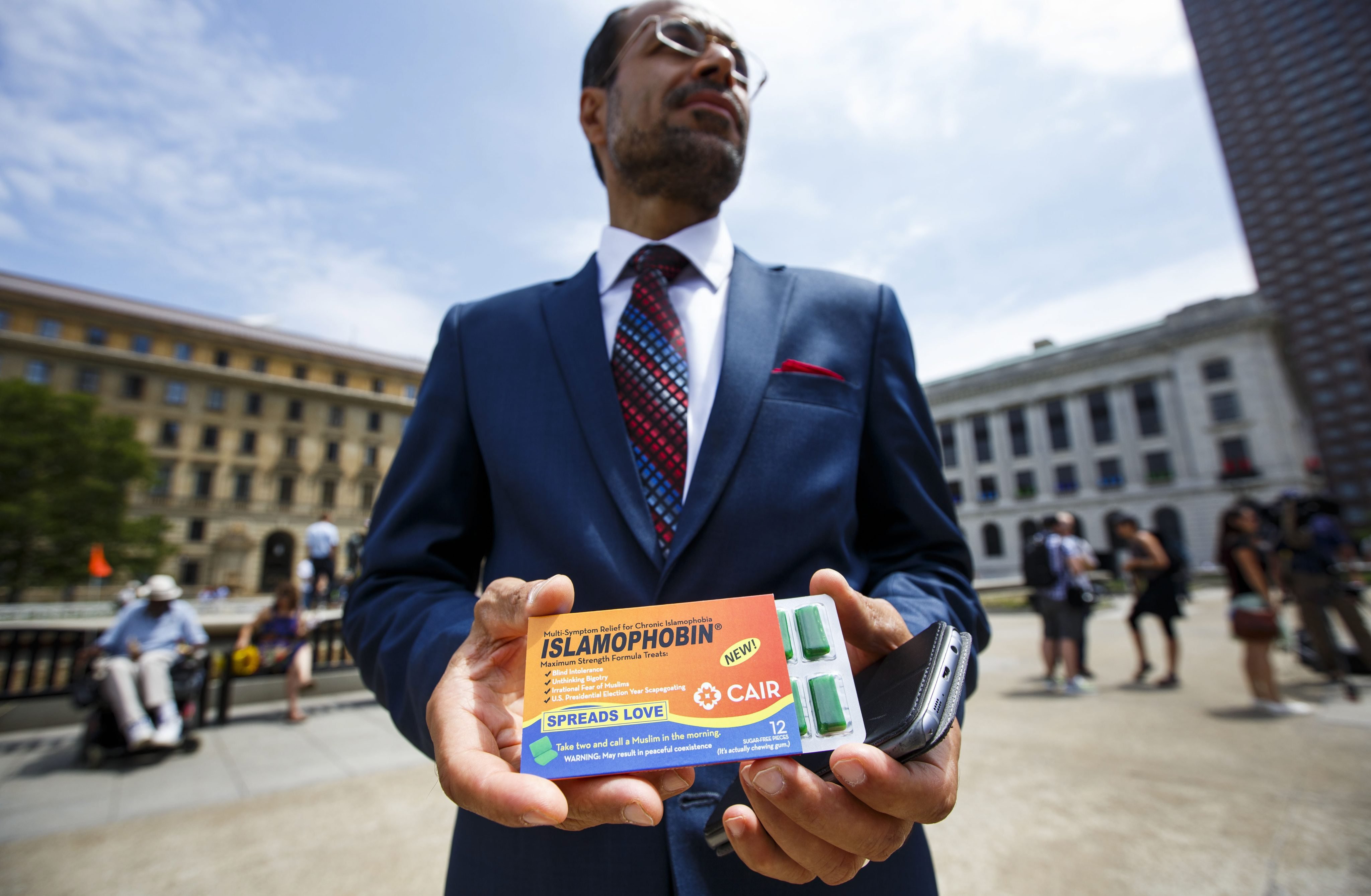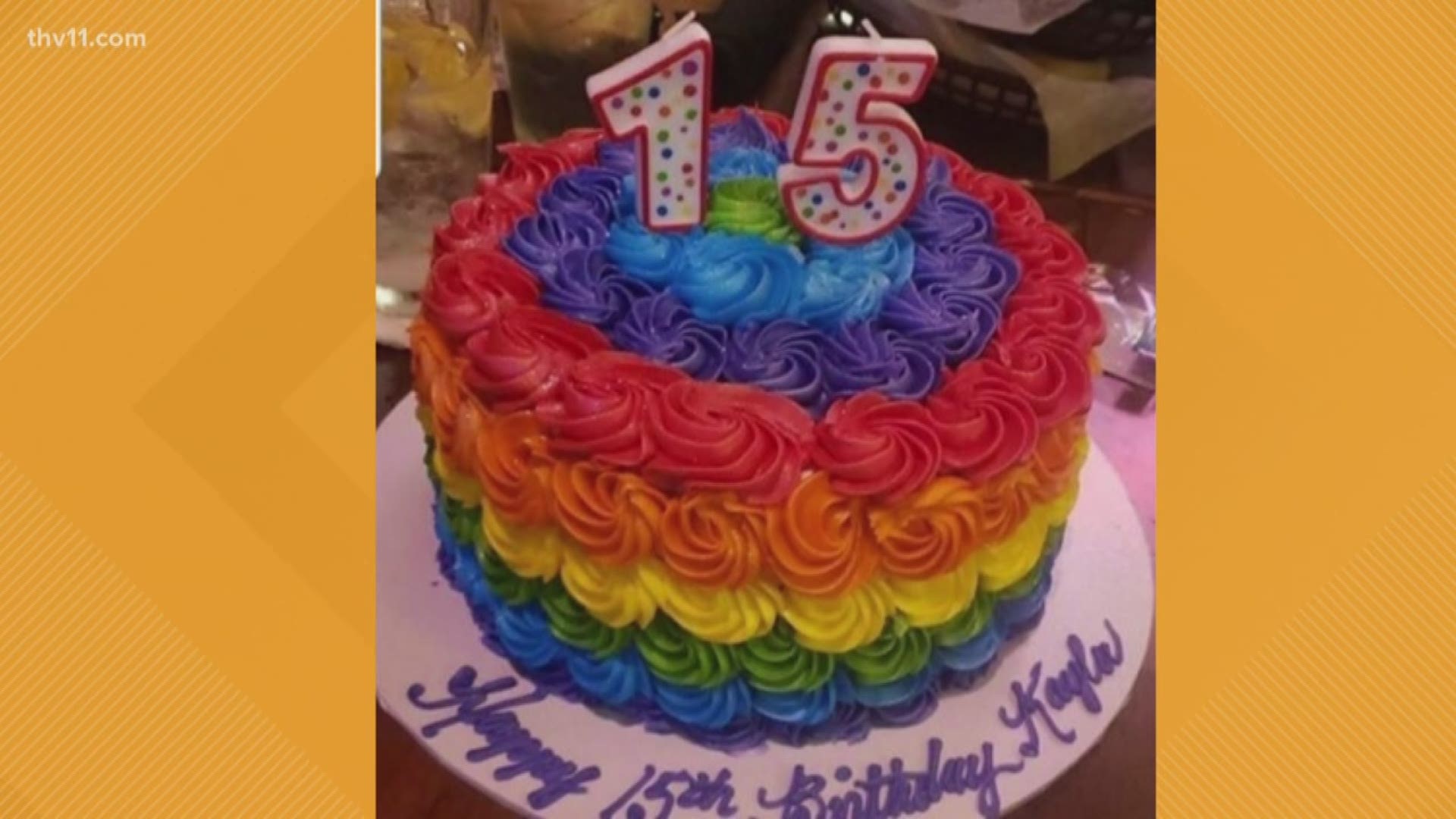CLEVELAND — As the Republican National Convention got underway in Cleveland, delegates faced increasing questions Monday about their party’s positions toward Muslims in America and abroad, with a leading Islamic group accusing the GOP of intolerance.
![The 2016 Republican National Convention in Cleveland, OH [videoplaylist : 87259818]](http://videos.usatoday.net/Brightcove2/29906170001/2016/07/29906170001_5040569203001_robertson-thumb.jpg?pubId=29906170001)
“For too long the Republican Party has been using fear as a political tool to drive a wedge between Islamic Americans and other Americans,” said Nihad Awad, executive director of the Council on American-Islamic Relations, speaking not far from the hall where the convention began Monday.
Awad and others with CAIR — which includes a chapter in southeast Michigan, home to one of the largest Arab-American and Muslim communities in the country — called for an end to what they called a “demonizing” of Muslim Americans, saying they want to bring an end to violence and radicalism based on a twisted interpretation of their religion as much as any other Americans.
![Anti-Islam Dutch politician a Tenn. guest at GOP convention [oembed : 87278238] [oembed : 87278238]](/Portals/_default/Skins/PrestoLegacy/CommonCss/images/smartembed.png)
Calling Islamophobia “a moral sickness and something we must reject together,” Awad called for “equal and fair treatment” of Muslims everywhere, accusing presumptive Republican nominee Donald Trump of emboldening “extreme voices of hatred.”
But even as some leading Republicans — Trump among them — have called for cracking down on immigration from Muslim countries and suggested Islamic communities in the U.S. aren’t doing enough to help law enforcement, other GOP regulars have called for less incendiary positions.
Michigan Attorney General Bill Schuette, for instance, denounced Trump’s comments about immigrants, while U.S. Rep. Fred Upton, R-St. Joseph, condemned Trump’s original proposal to ban Muslims from entering the U.S. saying it didn’t “follow the pattern of who America really is and what we stand for."
And when the Rev. Dr. Lou Prues of the Jefferson Avenue Presbyterian Church in Detroit delivered the opening prayer at Monday’s breakfast meeting of the state’s Republican delegation in Cleveland, he struck a similar note, asking God to “enlarge our sympathies” toward others and “give us a deeper understanding of those people who dislike us.”
![Rieder: Combating anti-Muslim rhetoric [oembed : 87278246] [oembed : 87278246]](/Portals/_default/Skins/PrestoLegacy/CommonCss/images/smartembed.png)
“I love these people,” Prues, a volunteer with the delegation, said after the prayer, referring to other Republicans. "But when I’m asked to pray I’m going to pray universally, globally. I’m not going to get caught up praying against this or that. I’m going to pray for a better understanding of all people.”
“I’m convinced radical anything is a danger,” he added.
Many in the party, meanwhile, have called for taking a hard line with Muslim immigrants and, in some cases, with those already in the U.S.
Former House Speaker Newt Gingrich, following last week’s truck attack in Nice, France, suggested Muslims should be tested and deported if they believe in Sharia law — a legal process based on Islam. He later said his remarks had been exaggerated.
![Newt Gingrich clarifies comments on Sharia law [oembed : 87278256] [oembed : 87278256]](/Portals/_default/Skins/PrestoLegacy/CommonCss/images/smartembed.png)
The Tennessean reported Monday that an outspoken critic of Islam from the Netherlands — Geert Wilders, founder of the right-wing Party for Freedom — was invited to the Republican National Convention by a Trump delegate, state Sen. Bill Ketron, R-Mufreesboro. Wilders, who has called Islam the "ideology of a retarded culture,” shook hands and took photos with many attendees at a Tennessee delegation meeting on Monday, including U.S. Sen. Bob Corker, who is chairman of the Senate Foreign Relations Committee.
In the Michigan delegation, soon-to-be-replaced national committeeman Dave Agema — no stranger to controversial comments — posted on Facebook last week his sentiments that, “When I hear the news commentators saying they don't know the motive of the killer in France, I know they are completely ignorant of Islam.” He then says, in the same post, that laws are needed to ensure Sharia law doesn’t get a foothold in Michigan because of the state’s large Muslim community.
CAIR condemned the attack in France, just, as Awad said, “we have condemned previous ISIS or ISIS-inspired atrocities and the deviant ideology that produces such senseless and cowardly violence." But many delegates, including some in Michigan, trust that Trump and his supporters know what they are doing.
"I totally have faith he is going to work with his advisers and make the right decision. I support everything he is saying," said Diane Schindlbeck, a Trump delegate from Spring Lake. “We just have to have good policies in place on who is allowed into our country ... We need a policy in place and not just let anyone here."
State Sen. Joe Hune, R-Hamburg Township, a Trump delegate and member of the convention Platform Committee, said: "If you look at Donald Trump’s policy in terms of building the wall (to stop illegal immigration from Mexico) and making certain when you’re coming in the country and you’re not a citizen, there will be additional securities and safeguards, I don’t know how you can argue against that."
Others weren't as comfortable with Trump's position, but said it's little more than campaign rhetoric.
“I haven’t heard he wants a ban on Muslims; he wants to temporarily restrict things and I think that’s still a policy that I’m not comfortable with," said state Rep. Ed McBroom, R-Vulcan, a Trump delegate. "He can target certain areas of the world, but it shouldn’t be based on ethnicity or religion."
"I want to believe that what he is talking about is making sure we’re a lot more cautious about the process, not that we’re restricting anybody based on their religion or ethnicity," he continued. "He speaks in very broad generalities and ultimately his policy has to get through Congress and meet Supreme Court muster. And a lot of these ideas, if you just take them as exactly the way he says, they won’t get through either of those processes. So it doesn’t really worry me that much because all of those other safeguards and checks and balances are in place."
Todd Spangler writes for the Detroit Free Press. Follow him on Twitter: @tsspangler


![RNC in Cleveland 2016 [image : 87269786]](http://www.gannett-cdn.com/-mm-/8e3e15e2d1a901eed8d25362a5fb283b0e0d2833/c=481-0-3614-2678/local/-/media/2016/07/18/DetroitFreePress/DetroitFreePress/636044651870121572-EPA-.JPG)
![Monday at the Republican National Convention in Cleveland [gallery : 87254162]](http://www.gannett-cdn.com/-mm-/65125fd10d32464bf269b90440ec9f361434a270/c=421-0-4200-3230/local/-/media/2016/07/18/USATODAY/USATODAY/636044806496908763-XXX-RH48999-b.JPG)
![The weird, wacky and wild from the Cleveland Republican Convention [gallery : 87217610]](http://www.gannett-cdn.com/-mm-/2d1042b0f0cce8f271bd78891ddf2cf6940b4df8/c=184-0-1816-1395/local/-/media/2016/07/18/USATODAY/USATODAY/636044730335816554-XXX-RNC-DAY1-VOGEL-0001.JPG)
